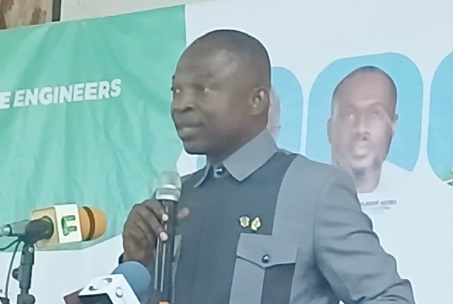The Local Government Service Engineers Association (LOGSEA) has called for the appointment of regional engineers to all regions across the country.
The association has attributed the non-existence of the position of regional engineer to the wide communication gap between engineers and their superiors.
The National President of the association, Richard Ben Debrah, made the call at the 3rd annual general meeting held at the Eastern Regional capital, Koforidua, at the beginning of this month.
The meeting on the theme: "Equipping the Engineering Departments of the Local Service for Sustainable Infrastructure Delivery in the Metropolitan, Municipal and District Assemblies (MMDAs)” brought together engineers working with the Ministry of Local Government, Chieftaincy and Religious Affairs in the country.
The meeting was held to equip the engineering departments in the Local Government Service for sustainable infrastructure delivery in the MMDAs.
The national president of the association said the lack of a position of a regional engineer had lingered on for many years, negatively affecting activities at the regional level, and stated that other classes in the service had regional officers representing them at the national level, except engineers.
Vacancies
He, therefore, requested the Head of Civil Service to open up vacancies for the regional engineer positions for members who were ready to pick up the position when it was officially advertised.
Mr Debrah also appealed to the Head of Civil Service to look at the postings of enrollment engineers/quantity surveyors and architects to the regions after their successful interview.
That, he explained, would help resolve some of the misunderstandings within the departments in some of the assemblies.
He further appealed to the ministry, as well as the Office of the Head of the Local Government Service, to ensure the provision of pick-ups and rigorous training for the staff under the engineering departments, and supply the remaining DRIP pick-ups to assemblies that did not benefit from the earlier distribution.
He urged his colleagues to also exhibit professionalism at all times and work assiduously to justify the demand for such logistics.
Mr Debrah deplored the situation where engineers of the MMDAs faced logistical challenges and struggled to support and monitor ongoing developments within the MMDAs, in contrast to external consultants who were at all times equipped to undertake supervisory roles at a fee.
Collapsing buildings
The Registrar of the Engineering Council, Isaac Bedu, said the recent incidents of buildings collapsing, including the tragic episode involving the Catholic Church building roof at Teshie in Accra, called for engineers as frontline guardians to adhere to public safety protocols.
He indicated that the engineers should ensure that the permits they issued, the sites they supervised, as well as every inspection done, must be devoid of far-reaching consequences.
Mr Bedu urged the engineers to abide by laws that regulate the engineering profession, to uphold construction standards and ensure safety.
That, according to him, would not only prevent disasters but also build a culture of trust and pride in engineering, adding that the engineering council was ready to work hand-in-hand with engineers to create a safer place for all in the country, irrespective of the construction sector.
Transformation
The Municipal Chief Executive (MCE) for New Juaben South, Ransford Owusu Boakye, who also addressed the engineers, said sustainable infrastructure had been the bedrock of socio-economic transformation in the country and that engineers remained at the centre of such a process.
He stated that no assembly could effectively deliver on its mandate of providing good roads, schools, health facilities, markets, water systems and drainage networks without vibrant and well-equipped engineering departments.
The MCE indicated that challenges bedevilling engineering departments at the MMDA level were inadequate logistics and equipment for effective supervision, inadequate training and capacity building opportunities, resource constraints that limited project monitoring and timely delivery, among other hiccups.
"If we really want to address these challenges and equip our engineering departments, then there should be a continuous investment in professional training.
"Engineering is a dynamic profession, and engineers must always keep abreast of current trends.
"Our engineering departments, which include staff of the Urban Roads and Works departments, must be continually trained to meet modern challenges," Mr Boakye stated.
He said the responsibility of engineers was enormous, including ensuring an integrated and harmonised infrastructural development at the district level, ensuring effective, efficient and sustainable service delivery (value for money), preventing the creation of slums and upgrading existing slums, and assisting the assemblies to formulate policies on works within the framework of national policies.
Writer's email: haruna.wunpini@graphic.com.gh

